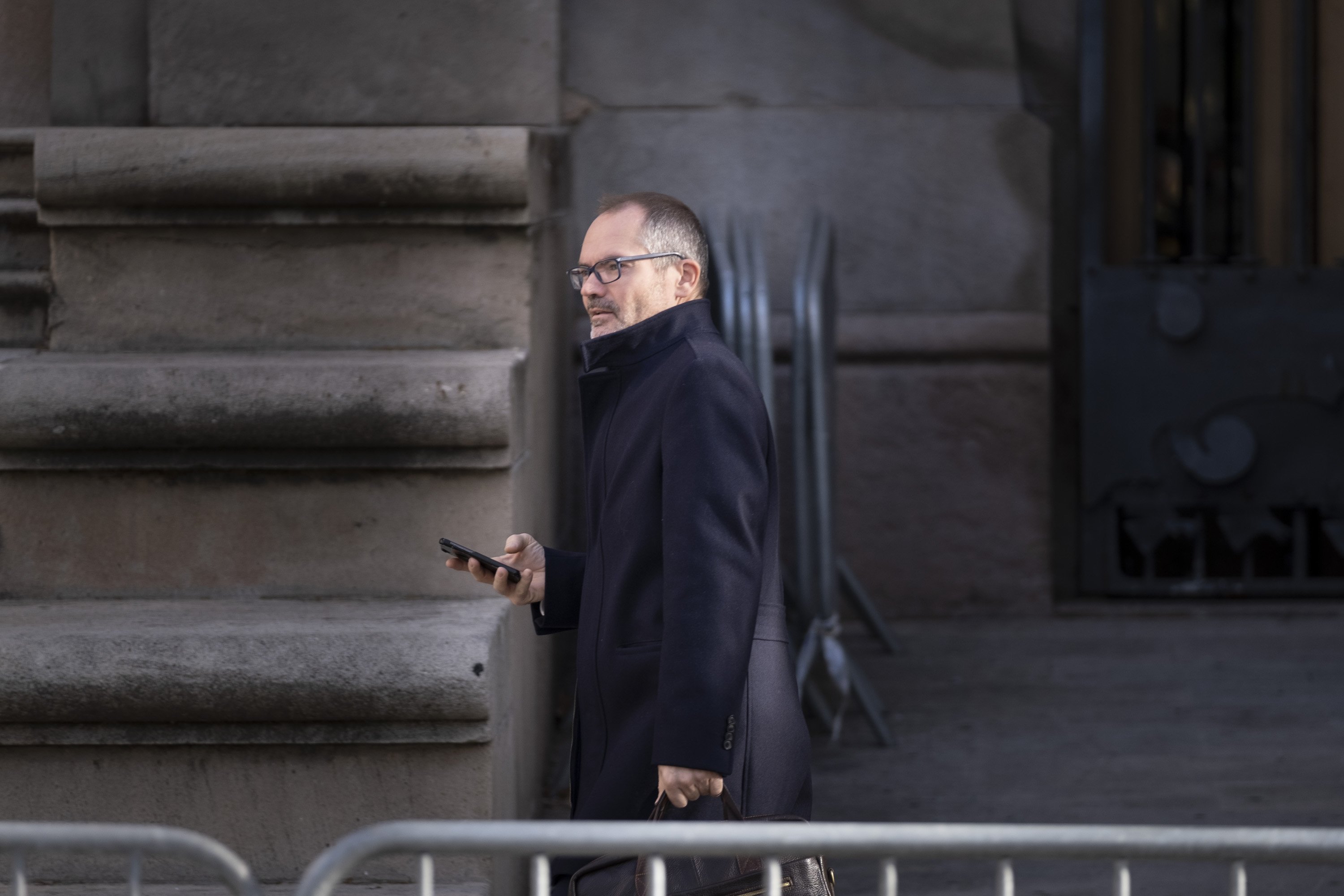Despite the acquittal verdict, he will appeal. The former deputy speaker of the Catalan Parliament, Josep Costa, has announced that he will mount a European appeal against today's verdict from the Catalan High Court (TSJC), acquitting himself and three other members of the parliamentary Bureau of disobedience against the Spanish Constitutional Court in 2019. Costa explained in an interview with Catalan public TV that he will take the case to the European Court of Human Rights (ECHR) "because the issue is not that they have acquitted me, but that they do not recognize the sovereignty of Parliament". Politically speaking, the jurist Costa considers that "it goes against all democratic laws to put the institution of Parliament on trial to penalize something that has been voted for". Costa recalled that he has always declared that he did not recognize the authority of the court, and therefore, as he added today, "I do not recognize the court's authority for the acquittal". Thus, he sees that the result of the trial "remains a violation of democracy, of the separation of powers and an attack against parliamentary inviolability". His battle in the case, he said, "was never focused on personal acquittal but on defending the sovereignty of the Parliament. And even though the verdict acquits us, it does not respect the sovereignty of the Catalan Parliament."
Acquittal verdict
The TSJC acquitted the four pro-independence members who made up the majority of the parliamentary Bureau of disobeying the Constitutional Court when they allowed parliamentary debate on two motions favouring the independence of Catalonia and expressing the general disapproval of the monarchy. The court decision to acquit was due to the lack of a clear and specific mandate in the rulings made by the Constitutional Court on October 10th and 16th, 2019, which allowed more than one interpretation. And, as well, the resolution states that no intention to disobey the Constitutional Court was proven.
In today's verdict, the court also refers to the inviolability mentioned both by Costa and the defence arguments of his fellow defendants, who asserted that, under the Catalan Statute of Autonomy and the Spanish Constitution, they are protected by the prerogatives of parliamentary inviolability and immunity from being placed on trial for disobedience. In this regard, the judges recall the new doctrine of the Constitutional Court which makes it clear that "the Bureau of a Parliament has the power to admit or not admit a motion if it is unconstitutional, and even if it is manifestly unconstitutional, but this power becomes an obligation to reject a motion if it is contrary to what the Constitutional Court has resolved", as the prosecutor alleged was the case in this situation.
Costa's boycott of the court
Josep Costa has consistently maintained his position regarding the inviolability of Parliament. In October, Costa walked away from the TSJC trial which has delivered today's verdict on the second day of the hearing. Defending himself in the case, he made a lengthy prior statement at the opening of the trial, calling for it to be anulled, and when this was rejected, he stated that he did not want to take part in a "simulation of a trial" which amounted to "political persecution" and thus announced that he would not offer any evidence nor present a written defence, but rather would take no further part in the trial and would appeal the case to the ECHR. Judge Carlos Mir warned him that, as the legal representative of the defendant - in this case, of himself - he could not leave his representative defenceless, and ordered a recess. Speaking to Catalunya Ràdio the day afterwards, Costa said that his gesture of leaving the courtroom was to "make himself heard" and show that "the trial cannot be held because it is full of irregularities". "I wanted to make clear the point that we have reached," said the pro-independence leader.
VIDEO from the trial in October: Josep Costa asserting that the TSJC hearing of the disobedience charges against the Catalan Parliamentary Bureau was a "simulation of a trial". He told the judges: "I have committed no crime, and if this case continues to a conviction, perhaps the people committing a crime will be you". Reiterating that he did not recognize the court, he then left the proceedings.

